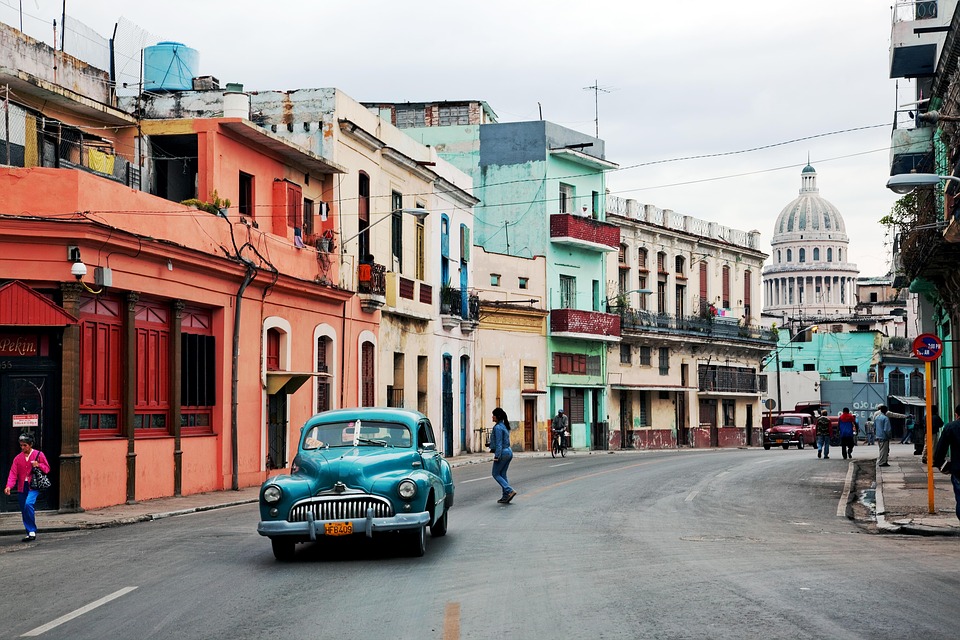After he leaves office in January, President Obama’s legacy — for better or for worse — will likely hinge on three of his achievements as commander in chief: The Affordable Care Act, the Iran Deal and his push for normalized relations with Cuba. The latter returned to the news last week, as the U.S. didn’t vote against a U.N. resolution critical of our Cuban embargo. This unprecedented move signaled an American desire to, in the words of Ambassador to the U.N. Samantha Power, “take the path of engagement” with Cuba. It also meshed with the Cuban diplomacy that Obama has fostered during his second term. In August 2015, Secretary of State John Kerry traveled to Cuba, the first such trip in 70 years; in March, Obama became the first sitting president to visit Cuba in nearly 90 years; and in September, Obama nominated a Cuban ambassador for the first time in more than 50 years.
Obama’s relative warmth toward Cuba mirrors the attitudes of his constituents: Decades of Gallup polls have proven that many Americans support re-establishing diplomatic relations between the two nations, and after years of progress, a majority of Americans now have a favorable view of Cuba. But his efforts haven’t sit well with some pundits, who hold to their Cold War-era grudges and want the populace to do the same. The Federalist’s Paul Bonicelli scolded Obama for legitimizing “a communist system that oppresses [Cubans] politically and deprives [them] economically”. Writing in National Review, Rep. Ileana Ros-Lehtinen, R-Fla. — along with a less notable Florida politician — called on the next president to “advance the cause of basic human rights for all in Cuba,” by introducing Cubans to “the embrace of a free-market economy,” among other remedies. Even New York Magazine’s Jonathan Chait, a self-described liberal, penned a screed in March about the dangers of Cuba’s communist ideology, which he feared would expand to consume the U.S. Confronting this cacophony of Cuba condemnations, we might benefit from taking a step back to consider the facts about the communist nation — and how it compares to our country.
Cuba is far from a paradise. Its government harshly restricts the press — Reporters Without Borders ranked Cuba 171st out of 180 countries in its World Press Freedom Index — and Amnesty International has repeatedly admonished the nation for human rights violations. Under both Fidel Castro, who ruled from 1959 to 2008, and his brother Raul, who has presided since then, Cuba has repressed citizens and cracked down on dissidents. With that said, the U.S. abuses human rights as well, most notably in its imprisonment of suspected terrorists in Cuba’s Guantanamo Bay; furthermore, Amnesty has reported that the American embargo has helped to harm the human rights of Cubans. While none of this exonerates the Castros, the context in which Cuba commits its human rights violations is integral.
And for all its flaws, Cuba’s communism excels in a great many ways. In terms of health care, it could even surpass the U.S. The World Health Organization has praised Cuba for emphasizing preventative care and covering virtually the entire population. With far more doctors per capita than the U.S. and most other countries, Cuba can offer more personalized medical care, which has proven quite effective. Despite the embargo, which limits the medical supplies that Cuban hospitals can rely on, the country has a similar life expectancy (78.7 years) to ours (79.8), while beating us in infant mortality rate (4.5 deaths per 1,000 for Cuba, 5.8 for the U.S.), according to the CIA’s World Factbook.
Not only does Cuba’s health care system work well, it works cheaply. In 2014, the U.S. spent more than 10 times as much per capita on health care than Cuba did, per the World Bank. That fiscal efficiency allows Cuba to undertake bold initiatives against other medical problems in Latin America. Operation Miracle, the biggest success of these, has helped restore sight to millions of vision-impaired people across the region. As the Affordable Care Act continues to barrage Americans with inflating premiums and penalties for not having insurance, it’s worth wondering if our island neighbor offers a better alternative.
The Cuban education system also inspires a great deal of envy. In 1960, shortly after ascending to power, Fidel Castro pledged to eradicate illiteracy from Cuba. His government mobilized thousands of teachers and trained many more, all with the goal of spreading education to the masses. Today, according to the World Factbook, 99.8 percent of Cubans age 15 and over can read and write; by contrast, more than 30 million American adults can’t read, per research from the Department of Education and the National Institute of Literacy. Cuba offers universal preschool, which remains a mere proposal in the U.S., and its nationalized university system means that a far greater proportion of 18- to 24-year-old Cubans are in college than Americans in the same age group. Even with the limited financial resources that the embargo brings, Cuba has largely triumphed in Castro’s grand educational vision.
No, communism is not a perfect system — the aforementioned autocracy of Cuba’s government can testify to that. But capitalism has numerous shortcomings, too, and polling data suggests that millennials have come around to this perspective. Hopefully, whoever resides in the Oval Office next will further normalize relations with Cuba, prioritizing the voices of the people over the anti-communist hawkishness of the pundit class. If Obama’s successor does follow in his footsteps, introducing the U.S. to better models of health care and education, the Affordable Care Act and the Iran Deal won’t matter: He will have cemented his legacy as one of our greatest presidents.
Ryan Romano is a sophomore journalism major. He can be reached at tripler26@gmail.com.



